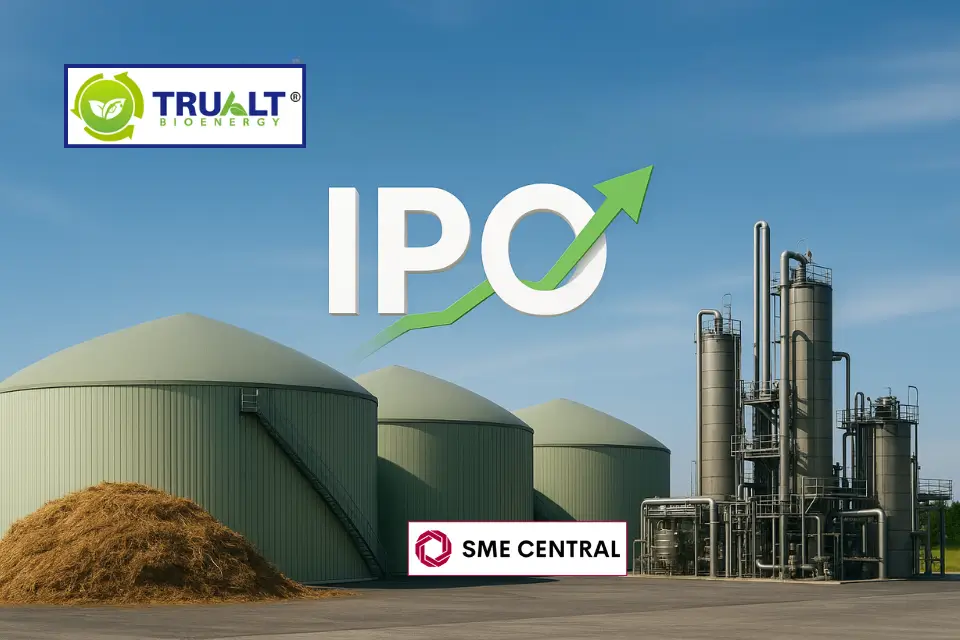In a move that underscores the strategic convergence of India’s bioenergy ambitions and Japan’s decarbonization expertise, TruAlt Bioenergy (TBL) has announced a joint venture with Sumitomo Corporation, one of Japan’s largest trading houses. The partnership, revealed during the Japan–India Next-Generation Economic Forum in Tokyo in the presence of Prime Ministers Narendra Modi and Shigeru Ishiba, marks a pivotal milestone in bilateral cooperation on sustainable energy.
The new entity will be structured as a Joint Venture Company (JVC), with TruAlt holding 51% and Sumitomo 49%. Its first wave of projects will see the construction of four Compressed Biogas (CBG) plants in Karnataka and Maharashtra, expected to generate around 1,700 direct, indirect, and livelihood opportunities. Looking forward, the collaboration intends to expand into ethanol and Sustainable Aviation Fuel (SAF)—two sectors considered vital for India’s clean energy transition and the global decarbonization agenda.
The Joint Crediting Mechanism (JCM): A Strategic Lever
TruAlt-Sumitomo joint venture will be anchored in the Joint Crediting Mechanism (JCM), Japan’s flagship framework to link its low-carbon technologies with partner countries’ energy ecosystems. The mechanism ensures transparent crediting of greenhouse gas (GHG) reductions and supports the Paris Agreement-aligned Nationally Determined Contributions (NDCs) of both India and Japan.
By leveraging JCM, the partnership does not merely build energy projects—it also creates a cross-border climate finance architecture that aligns with both nations’ commitments to net-zero pathways.
Leadership’s Vision: Farmers, Rural Jobs, and Energy Sovereignty
Vijay Nirani, Founder & Managing Director of TruAlt Bioenergy, emphasized that biofuels are central to India’s “Panchamrit” goals of lowering carbon intensity and boosting renewables. He highlighted that the partnership is designed not only to propel India toward energy sovereignty but also to empower farmers and rural economies:
“Anchored in the Joint Crediting Mechanism, this alliance will accelerate India’s clean energy transition while contributing meaningfully to Japan’s climate commitments,” Nirani noted.
The JVC is expected to enhance farmer incomes by sourcing agri-residues, support circular agriculture, and catalyze rural industrialization—echoing the government’s SATAT (Sustainable Alternative Towards Affordable Transportation) initiative.
A Company on the Move: IPO and Expansion Plans
The timing of the announcement is no coincidence. TruAlt Bioenergy is gearing up for its much-awaited ₹1,000 crore IPO, slated for September-end 2025. Having secured SEBI’s approval in November 2024, the company had delayed roadshows due to global market uncertainty. With investor meetings now back in full swing since July, the Sumitomo partnership adds significant strategic heft to its investment story.
The numbers already paint a compelling picture:
- Revenue surged from INR 762.38 crore in FY23 to INR 1,969 crore in FY25.
- EBITDA rose from INR 188.09 crore in FY24 to INR 309.14 crore in FY25.
- PAT skyrocketed from INR 31.73 crore in FY24 to INR 146.64 crore in FY25, a 362% YoY growth.
With a 7% share of India’s molasses-based ethanol market and a growing footprint in CBG and SAF, TruAlt is positioning itself as India’s leading integrated biofuels major.
Read Also: IIT Guwahati Nanosensor Detects Cancer-Causing Water Pollutants Instantly
Multiple Strategic Partnerships: A Pattern of Aggressive Scaling
The Tokyo deal with Sumitomo is not an isolated event—it is part of a larger pattern. Just weeks earlier, TruAlt entered a joint venture with GAIL (India) Ltd., under which the Maharatna PSU acquired a 49% stake in TruAlt’s CBG arm, Leafiniti Bioenergy. Together, they are planning six high-capacity greenfield CBG plants, with production potential of nearly 24,000 tonnes annually.
Coupled with its new Oil Marketing Company (OMC) license that allows it to retail fuels—including ethanol and Bio-CNG—TruAlt is now in a unique position: it is both a large-scale producer and a direct distributor of clean fuels. This vertical integration strengthens its revenue model and enhances margins, a factor that will not go unnoticed by IPO investors.
Market Outlook: Why Investors Should Watch Closely
The TruAlt–Sumitomo partnership, with its global credibility and climate finance backing, provides an additional narrative for investors: this is no longer just a domestic ethanol producer—it is an international clean energy player with bilateral support from Tokyo and New Delhi.
For investors evaluating the IPO, the key takeaways are:
- Diversified Growth Engines: Ethanol, CBG, SAF, and now retail distribution through OMC status.
- Strategic Partnerships: Sumitomo for international expansion, GAIL for domestic scaling.
- Robust Financial Growth: Triple-digit PAT growth and strong revenue momentum.
- Policy Alignment: Clear positioning in India’s energy transition roadmap and Japan’s decarbonization strategy.
Conclusion
The TruAlt–Sumitomo partnership in Tokyo is more than a bilateral agreement—it is a signal to markets. By aligning with a global giant and embedding itself in the JCM framework, TruAlt has showcased its ability to not just produce biofuels, but also to become a global bioenergy hub.
With its IPO just weeks away, this partnership strengthens TruAlt’s investment case, turning it from a promising ethanol producer into a serious clean energy contender with global backing. For investors eyeing the Indian energy transition story, TruAlt Bioenergy is now firmly at the center of the stage.

